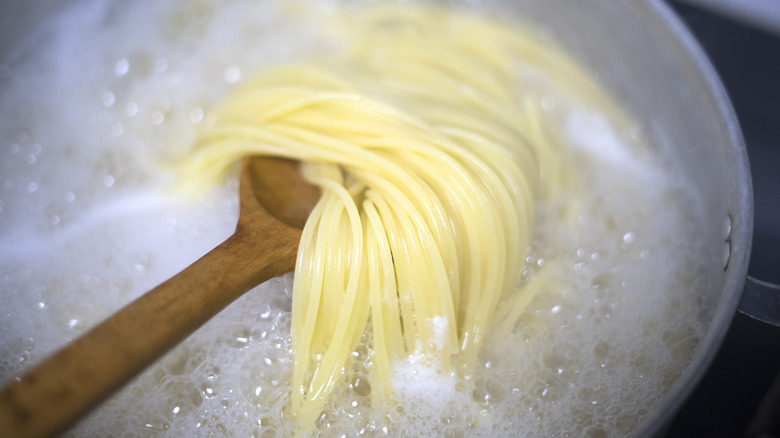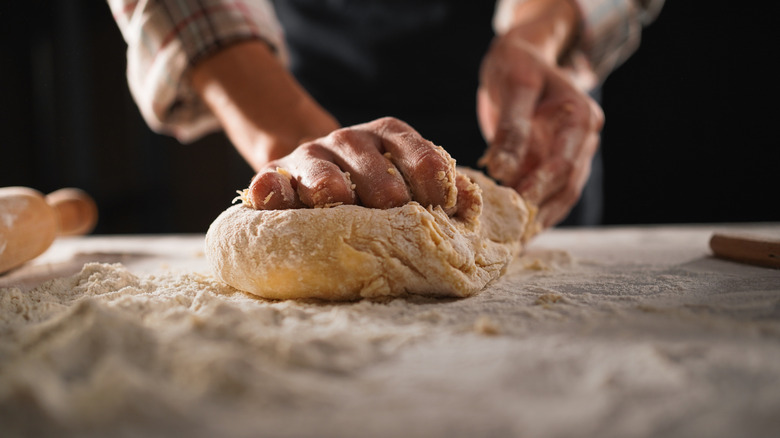Should You Use Filtered Water To Make Fresh Pasta?
You painstakingly salt your pasta water and time your boiling process meticulously to make the perfect al dente bite — but did you know that the key to cooking the best pasta might actually be in the water you're using? Chowhound spoke exclusively with Patricia Vega, executive chef at Jr & Son in Brooklyn, to get her take on whether the type of water you use to boil your pasta makes a difference in the end result.
Vega says that there are a few factors to consider when deciding whether it makes sense to use filtered water for boiling pasta in your kitchen. "Tap water is fine if it tastes good and doesn't leave residue in a kettle — this usually means its balanced," she says. If you have hard water or your tap water has high levels of chlorine, you might benefit from using filtered water (or another type of soft water) when you're making pasta. Basically, if you're perfectly happy to drink a glass of water straight from your tap, it's probably going to be a good fit for boiling pasta. If you'd prefer bottled, or if your tap water smells like it's been scooped from a chlorinated pool, you'll want to use filtered water for your pasta.
Water makes a difference in some non-pasta dishes, too
Pasta isn't the only delicious carb that water choice can influence during the prep process — both pasta dough and bread can also benefit from filtered water. Chef Patricia Vega says that the delicate process of making pasta dough requires close attention to texture and structure, and that filtered water can make all the difference in getting the right pre-boil consistency. Pasta dough is a notoriously tricky at-home endeavor, and following simple steps on how to easily make pasta dough (including how to master the volcano method) can help you get it right.
Bread dough can also be temperamental, and using filtered water can help to increase the likelihood of getting the end product that you want. When you use filtered water to make bread dough, you might find that you get a softer loaf. Filtered water can make yeast more effective in baked goods, as Vega notes it's reactive to mineral content, which can help your bread's rise to increase for a fluffier end result. In addition to staying away from hard or chlorinated water, be sure to avoid these rookie mistakes when baking bread.

